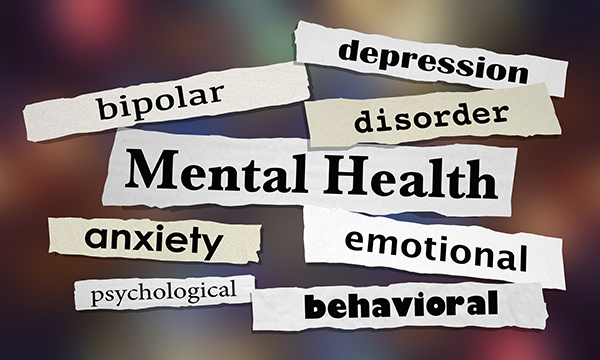Scientists warn acetaminophen during pregnancy may raise autism and ADHD risks
08/27/2025 / By Cassie B.

- Pregnant women are routinely prescribed acetaminophen despite mounting evidence linking it to autism and ADHD in children.
- A landmark review of 46 studies found strong correlations between prenatal acetaminophen exposure and neurodevelopmental disorders.
- The drug crosses the placenta in under an hour, disrupting fetal hormones, increasing oxidative stress, and altering gene expression.
- Over 65% of U.S. pregnant women use acetaminophen, raising concerns of a public health crisis fueled by unchecked pharmaceutical profits.
- Researchers demand urgent updates to clinical guidelines, transparent warnings, and safer alternatives—but Big Pharma resists accountability.
For decades, acetaminophen has been the go-to pain reliever for expectant mothers, trusted by doctors and recommended by health agencies worldwide. But what if that trust was misplaced? What if the very medication meant to ease discomfort was silently rewiring your baby’s developing brain?
A bombshell review of 46 studies involving more than 100,000 participants has just dropped, and the findings are nothing short of alarming. Published in BMC Environmental Health and led by researchers at the Icahn School of Medicine at Mount Sinai, the study found “strong evidence” linking prenatal acetaminophen exposure to increased risks of autism and ADHD in children.
Of the studies examined, 27 showed significant connections between the drug and developmental disorders, while higher-quality studies were more likely to confirm these links. Only nine found no association, leaving parents and doctors with a disturbing question: Has Big Pharma’s “safe” painkiller been quietly fueling the autism and ADHD epidemic?
The drug crosses the placenta in under an hour… and then what?
Here’s how it works: When a pregnant woman takes acetaminophen, the drug crosses the placental barrier within 60 minutes, flooding the fetal bloodstream at concentrations matching her own. Once inside the developing brain, it wreaks havoc in multiple ways. The drug disrupts hormone production, critical for normal brain formation, while increasing oxidative stress—a known culprit in neurodevelopmental damage. It also alters gene expression through epigenetic changes, potentially rewiring neural pathways responsible for attention, social behavior, and cognitive function.
As Dr. Diddier Prada, lead author of the study, warned: “Our findings show that higher-quality studies are more likely to show a link between prenatal acetaminophen exposure and increased risks of autism and ADHD.” And here’s the kicker: This isn’t just about rare cases. Acetaminophen is the most commonly used drug during pregnancy, with over 65% of expectant mothers in the U.S. reporting use. If even a small percentage of these exposures contribute to developmental disorders, we’re looking at a public health catastrophe—one that’s been unfolding right under our noses.
Let’s talk timing. Over the past few decades, autism and ADHD rates have skyrocketed by more than 20-fold. While genetics and environmental factors certainly play a role, the parallel rise in acetaminophen use during pregnancy can’t be ignored. The drug became the default recommendation for pain and fever in expectant mothers precisely as these disorders surged. Is that just a coincidence? Or is it the smoking gun in a medical scandal that’s been decades in the making?
The study’s authors are calling for urgent updates to clinical guidelines, cautious and limited use of acetaminophen under medical supervision, and further research into safer alternatives. But here’s the problem: Big Pharma has no incentive to warn pregnant women. Acetaminophen is a multi-billion-dollar cash cow, and the companies behind it have a long history of downplaying risks to protect profits. (Remember the talc cancer lawsuits? The opioid deception? This is the same playbook.)
A broken system
Pregnant women deserve the full truth, not just Big Pharma’s reassurances. If acetaminophen carries even a modest risk of rewiring a child’s brain, informed consent isn’t optional—it’s a fundamental right.
This isn’t just about acetaminophen. It’s about a medical-industrial complex that prioritizes profits over people, where regulatory agencies like the FDA and CDC rubber-stamp dangerous drugs while ignoring red flags. It’s about a culture of silence where doctors who question the status quo are labeled as quacks and parents who demand answers are dismissed as conspiracy theorists.
But the jig is up. The science is in. And if history is any guide, Big Pharma will fight tooth and nail to suppress it. Remember Dr. Andrew Wakefield? The scientist who first raised concerns about vaccines and autism, only to be publicly crucified, defamed, and stripped of his license—before later studies vindicated his findings? The same playbook is already in motion.
Parents, doctors, and policymakers cannot afford to wait for another decade of studies while more children pay the price. The Mount Sinai researchers are calling for immediate changes to clinical guidelines, more transparent warnings, and funding for safer alternatives. But let’s be real: Change won’t come from the top down. It never does.
This is a grassroots battle, and it’s one that starts with educated mothers demanding better, doctors willing to think critically, and a public that refuses to be gaslit by corporate medicine.
Sources for this article include:
Submit a correction >>
Tagged Under:
Acetaminophen, adhd, autism, Big Pharma, chemical violence, mental, mind body science, pain medicine, pregnancy, prescription warning
This article may contain statements that reflect the opinion of the author





















